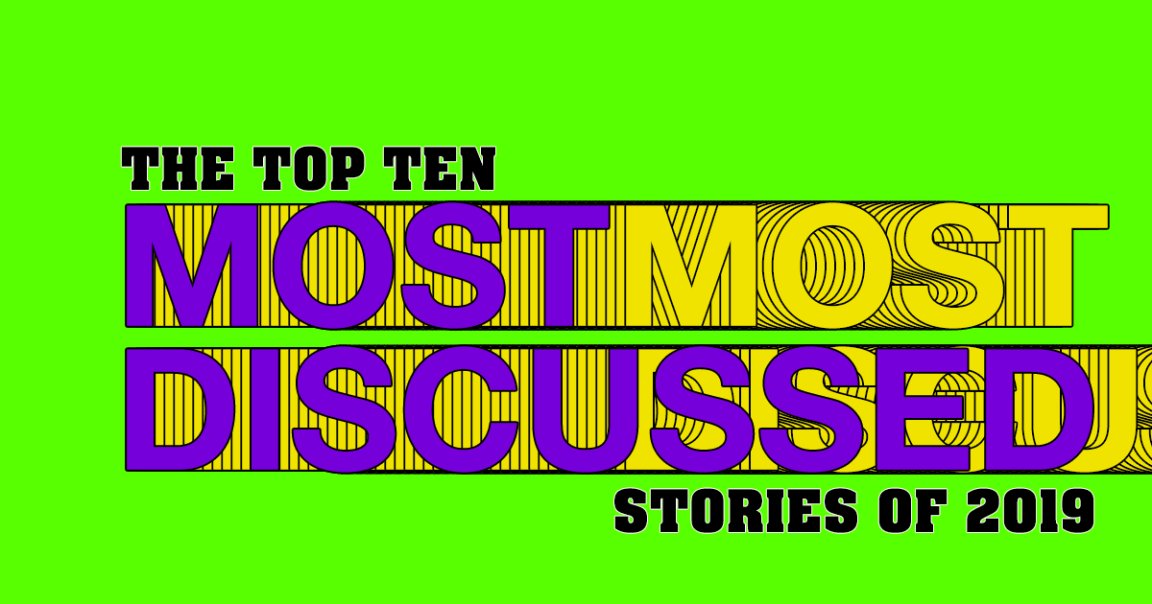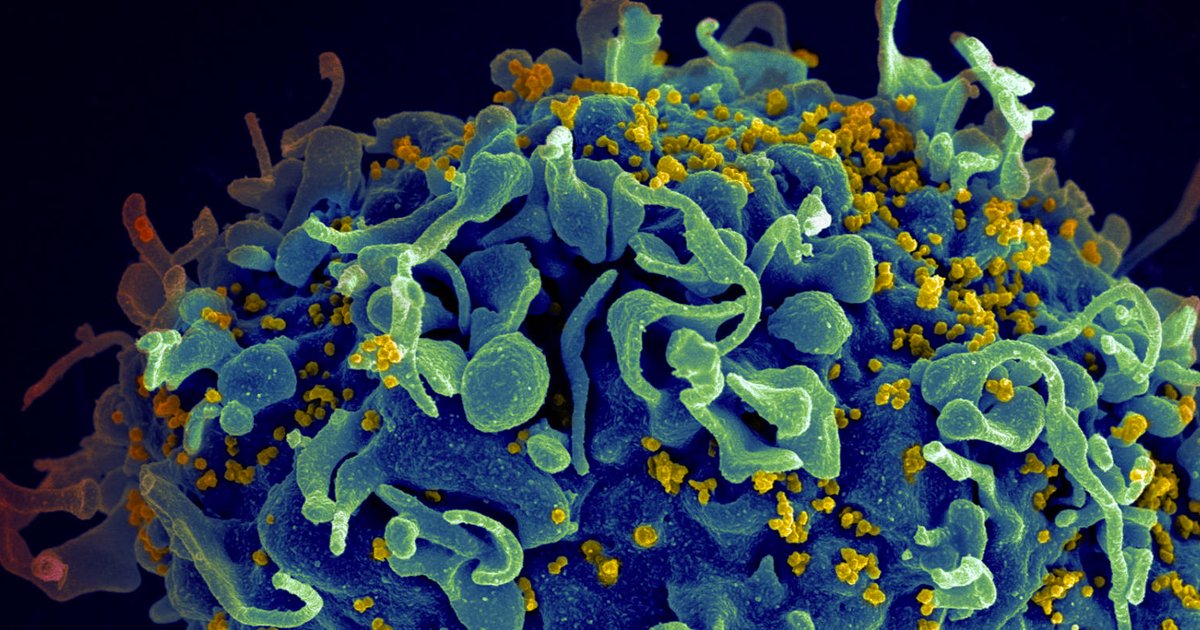
SO, SO MUCH. In 2019 — just one year! — alone, we saw the meteoric rise of gene-editing with CRISPR and major breakthroughs like Google finally achieving quantum supremacy. And that was just two of the more than 3,000 stories Futurism published this year.
There are, of course, the stories that were read the most, and the stories that mattered to the staff of Futurism the most. But there’s a third category of stories we couldn’t end the year without looking back on: Those which you, the readers and fans of Futurism, had the most to say about. Be it by retweet, re-gram, comment, like or share, the below stories are the ten moments in Futurism’s 2019 that sparked the most conversation, the most engagement, and the most noise.
Without further ado, meet Futurism’s Top Ten Most-Discussed, Shared, and Socialed Stories of 2019:
10. Chinese Scientists Gene-Hacked Super Smart Human-Monkey Hybrids

What Happened: In April, a report surfaced: A team of Chinese scientists used gene-editing techniques to make monkey brains more humanlike, increasing the animal’s intelligence as a result.
Why It Mattered: As gene-editing technologies have become more advanced and accessible, researchers have started blurring the lines between what constitutes ethical and unethical lab experiments. Genetic experiments on monkeys, and more so on humans, tend to make us profoundly uncomfortable. For pretty obvious reasons.
What Readers Had to Say? Via Facebook: “I’ve seen this movie, it didn’t end well.” — Mike Boydstun. “New Headline ‘Scientists literally do what every sci fi [sic] movie warns against.'” — Jayson Allen.
9. Devastating Fires in Amazon Rainforest Can Be Seen From Space

What Happened: The summer of 2019 shattered heat records, with 2019 ultimately becoming the second hottest year on record so far. Wildfires raged across the Amazon Rainforest consuming over 4.6 million acres since the begging of 2019, at one point creating smoke which could be seen in satellite imagery and was enough to block out the sun in the Brazilian city of São Paulo.
Why It Mattered: The future of our planet, for starters. With the state of social media being what it is, it’s easier than ever for dramatic photos and videos of wildfires and extreme weather to proliferate.
What You Had to Say: “I’m in São Paulo, right now, my eyes and throat are hurt [sic] because of the smoke. And it is really far from Amazon! This is the sky in the middle of the day” — Eduardo Malpeli, who also provided us with photos.
8. Luxembourg Just Made Public Transportation Free for Everyone

What Happened: In late 2018, elections in Luxembourg brought to power a government coalition that promised to make public transportation free by 2020. Despite the country’s tiny size being decried as a factor which made the feat easier, it was still a world first.
Why It Mattered: Although some communities offer zero-fare public transportation locally, this was the first concentrated national effort to provide public transport at no cost to users. The end result of Luxembourg’s transport plans may be varied, but could be looked to as a model by other European nations considering similar policies.
What You Had to Say: Plenty of readers were quick to point out that, while exciting, the news meant little for other larger (or poorer) nations. Others pointed out that a transport system which costs $562 million (€491 million) per year wasn’t technically free (vis-a-vis, besides the municipal spend itself, taxpayers footing the bill).
7. Seaweed Straw “Looks, Feels, and Acts Like Plastic,” Says Startup

What Happened: In an attempt to find recyclable drinking straw solutions that weren’t paper or plastic-based, startups like Loliware turned to unconventional materials (seaweed, in this case).
Why It Mattered: This was a year in which arguments on environmental protections created a schism over the future of drinking straws. Concern over plastic pollution, particularly in our oceans, reached a fever pitch. Out of concern for the wellbeing of animals, fair or not, plastic straws bore the brunt of environmentalist passions.
What You Had to Say: Tough to please as Futurism readers are, this potential solution only sparked more disparate conversations, enough is never enough. Some commenters pointed out that more plastic items should be made from seaweed, others suggested we didn’t need straws at all.
6. Watch a Cybertruck Pull a Helpless Ford F-150 up a Hill

What Happened: Was the Cybertruck the Most 2019 Thing of the year? Naturally, we covered the Cybertruck a lot, here, as it was all anyone talked about for a few days. When Tesla towed a Ford F-150 uphill, Ford couldn’t help but call out its rival. Yet, after Tesla’s shot across the bow, it looked like it was barely a parry.
Why It Mattered: Tesla was eager to show off it’s unique looking truck of the future, demonstrating through a variety of stunts the durability of the Cybertruck as a vehicle. Being unlike anything on the market before Tesla was eager to show pundits the market viability of its Cybertruck and came out swinging for the fences.
What You Had to Say: Debates ensued over the details of specs and torque, vehicle weight, and aesthetic design. “What a great marketing thing!” reader Edward Scanlon wrote on Facebook. “Tesla seems to be especially good at that, not just with power in the engine, “Ludicrous Mode,” and other features of their vehicles.“
5. Legal Marijuana Could Threaten Alcohol Industry, Says Report

What Happened: It’s a tale of two vices, and there’s apparently only room for one. As marijuana use continues to expand and receive widespread support, the alcohol business would do well to take note of its potential effects on the world’s drinking habits.
Why It Mattered: Based on new research — though, pretty obviously perceivable without it — marijuana legalization led to an explosion of growth for the cannabis industry. In places that have legalized marijuana, it’s estimated that up to 40 percent of people over 21 now partake. If the alcohol industry doesn’t learn how to market to this new group of inhalers/imbibers, it could be left in the dust.
What You Had to Say: Naturally, you all had a lot of feels. Some thought it was good news, claiming alcohol is way worse for you anyway. Some of you are still going to drink. But a bunch of others just used our comments section for low-end weed jokes: “I guess that’s called ‘Killing two birds with one stoned.'” went one. So, maybe we should just… all lay off everything?
4. Italy Bans Unvaccinated Children From Going to School

What Happened: A new law in Italy made it compulsory for every child in the country to receive a range of immunizations including measles, polio, chickenpox and mumps. Other countries are now looking to this model as well.
Why It Mattered: Public safety, public health, but especially as a major development in the fight against anti-vaxxers, which the World Health Organization called one of the greatest threats to world health.
What You Had to Say: Sometimes, we social media moderators must deal with comment sections proliferate with fake news, vitriol, and hate speech. Because we care about the integrity and factuality of our work, we take seriously and do our best to moderate and block those with an agenda to spread false, and dangerous, information. But ultimately, the science supports vaccination, and many of you did too: One commenter put it simply, and succinctly: “Anti-vaxxers want to privatize their decisions regarding vaccinations but socialize the risks to everyone.” That said, we also had to contend with the seemingly cursory anti-vaxxers who showed up in the comments. Rather than try to try to contextualize the vitriol, let’s just say: It was a spirited debate among certain constituencies, who will never not take the opportunity to turn the volume up on their cause to deafening, unproductive degrees. It happens.
3. The US Army Is Equipping Soldiers With Pocket-Sized Recon Drones

What Happened: The United States army invested nearly $40 million into developing tiny baby drones that could fit inside the palm of your hand, or, more likely, in the pocket of a soldier. But don’t let their tiny size fool you into thinking they’re harmless — the Black Hornet “nano-unmanned aerial vehicles” could give soldiers a bird’s eye view and “lethal edge” on the battlefield.
Why It Mattered: The rapid innovation of the military tech industry is both awe inspiring and a little horrifying. Soldiers aren’t just carrying guns and bullets anymore — they’re merging with machines, becoming equipped with electronic exoskeletons, futuristic contact lenses, and autonomous weapons. The battles of the future aren’t going to happen in trenches, they’re going to be fought between two men observing autonomous drones from the comfort and safety of unmarked hideouts.
What You Had to Say: On this story, you all weren’t too happy about the dystopian tech. “Technology like this makes me realize what a freakin genius Phillip K. Dick was,” one commenter declared, receiving quite a few likes. Another reader on Facebook wondered: “What about feeding the veterans? Oh, there is no money for that.” From where we stand, it looks like the military’s excessive spending might not sit well with citizens who could find quite a few other places to spend $39 million.
2. A Supermassive Black Hole Yeeted This Star at 3.7 Million MPH

What Happened: Five million years ago, the supermassive black hole at the center of the Milky Way sent an unfortunate star rocketing away at at 3.7 million miles per hour — so, like, we’re never gonna see that lil’ guy ever again.
Why It Mattered: Putting aside the sheer metal-osity of a black hole furiously yeeting — yes, yeeting — a star away from itself, the discovery of this bizarre event could also help astronomers confirm a whole slew of hypotheses about the complicated relationship of black holes vs. stars. Who will win? Seems like the black hole remains undefeated.
What You Had to Say: Okay, yeah: We…may have had a bit of fun with the headline on this one. Many pondered whether “yeeted” was even a word, and accused us of “just trying to sound like MiLleNniaLs.” Also: “Futurism already living the future where yeet is the official word in the english dictionary,” wrote one reader on Facebook. “The star said YOLO and was thusly yeeted,” explained another. Yeets and yotes not withstanding, the fact remains that this year brought us fascinating developments in research into black holes (including the first photo of one, literally ever) and this story’s nothing if not awe-inspring.
1. A Third Patient Is Now Reportedly Cured of HIV

What Happened: Just two days after doctors claimed that a second patient was HIV-free, another team cleared the infection in a third patient. This patient underwent the same type of bone marrow transplant as the other two HIV-free patients. Three months after they stopped taking antiviral drugs, biopsies from the patient’s gut and lymph nodes showed no infectious HIV — a groundbreaking update in the fight to eradicate HIV.
Why It Mattered: This one should go without saying, but sure: Globally, there are 37.9 million people living with HIV, and nearly 15 million of them don’t have access to the life-saving medicine they need. Every single year, another 1.7 million people are infected with HIV; this isn’t a problem that affects one group of people or one country. HIV is a global crisis, with more than 2,000 people dying every single day from AIDS-related causes.
What You Had to Say: You all had a lot of respect for the scientists who worked tirelessly for the cure: “Please don’t let all these doctors fly on one plane… we must protect them at all costs,” went one comment. “So it wasn’t all the prayers? I. Am. Shocked.” went another. You love to see it. Turns out, the hard facts of science sometimes actually win after all. To close out, and in the words of one of you, our valued readers, here’s to another year of “science being all sciencey and helping humanity and stuff.” Amen.